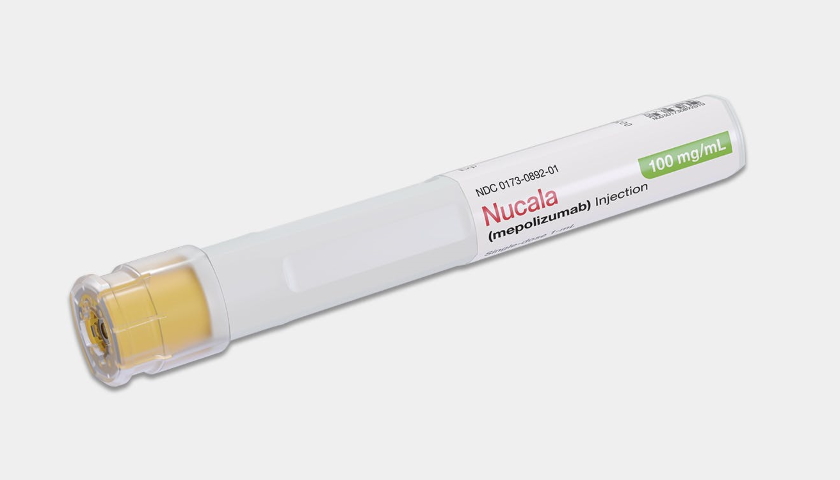Sanofi/Regeneron on notice as FDA reviews GSK’s Nucala for nasal polyps

Sanofi and Regeneron’s Dupixent has had the US market for the treatment of chronic rhinosinusitis with nasal polyps (CRSwNP) mainly to itself since June 2019, but GlaxoSmithKline’s Nucala is now breathing down its neck.
The FDA has started its review of Nucala (mepolizumab) for the inflammatory condition, which results in the growth of nasal polyps in the nose that can obstruct airflow and cause mucus discharge, sometimes requiring surgical intervention.
In severe cases, polyps recur, so patients have to undergo multiple operations that according to GSK progressively become less effective and more risky.
The anti-IL-5 antibody is already approved by the FDA for severe asthma and two other conditions – hypereosinophilic syndrome (HES) and eosinophilic granulomatosis with polyangiitis – and is one of GSK’s top growth products with sales rising 28% to more than $930 million in the first nine months of this year.
If approved, it will be the first biologic challenger to Dupixent (dupilumab) – which has a different mechanism of action targeting IL-4 and IL-13 – and would also keep Nucala ahead of IL-5 class rivals like Teva’s Cinqair (reslizumab) and AstraZeneca’s Fasenra (benralizumab) that are challenging it in asthma.
The FDA’s review centres on the SYNAPSE trial, which involved 400 patients with a history of previous surgery who were in need of another procedure due to growing polyps and severe symptoms.
The drug improved both the size of nasal polyps at week 52 and in nasal obstruction during weeks 49-52, compared to placebo when added to standard of care, and extended the time to surgery by 57%.
Standard care for CRSwNP consists of corticosteroids in the nose, after surgery and systemic corticosteroids, but these often lack efficacy.
AZ reported positive results with Fasenra in CRSwNP in September, so may not be far behind with its own regulatory filings, and has also started to catch up with first-to-market Nucala in sales terms, growing 34% to $666 million in the first three quarters of 2020.
Regeneron meanwhile said last month that CRSwNP has been helping to drive increased sales of Dupixent, with a “strong uptick” in prescribing for this indication this year as well as a good performance in other uses like atopic dermatitis that drive it to more than $1.1 billion in global sales in the third quarter alone.












